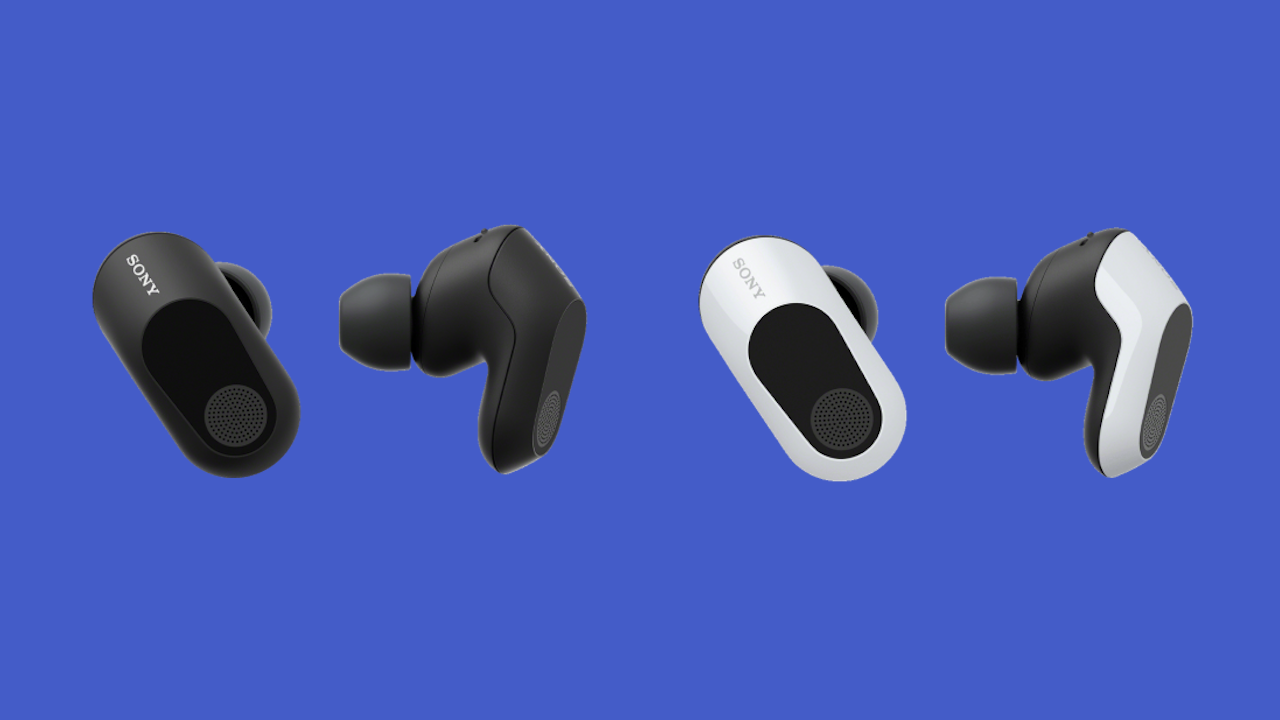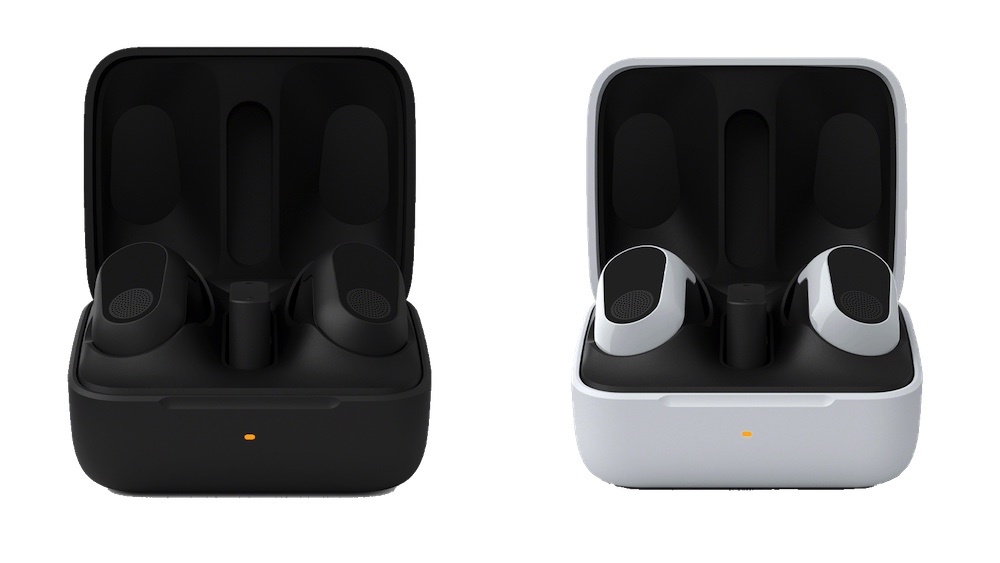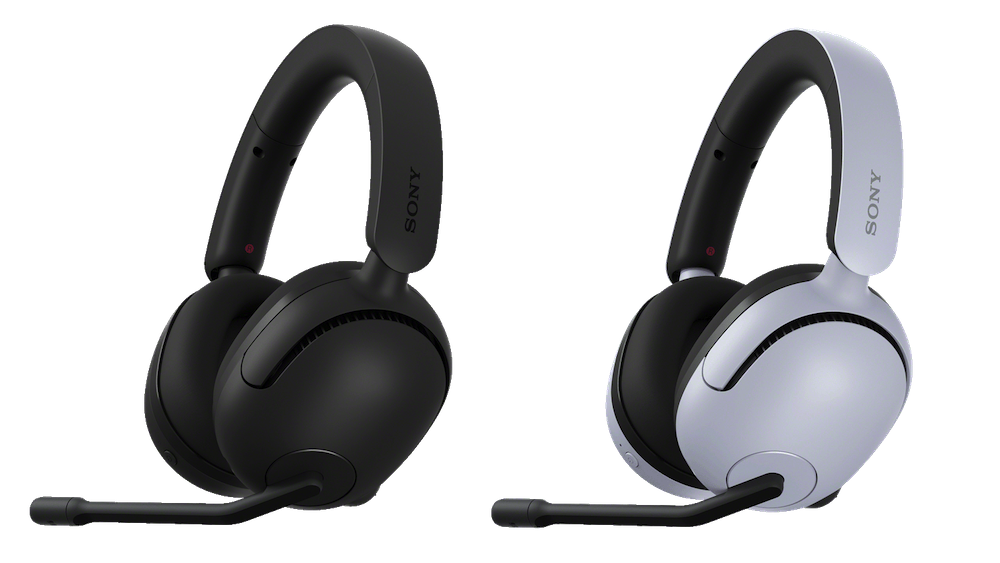Last year, Sony Electronics jumped into the gaming headset space with a series of over-ear cans dubbed Inzone. If you’re sitting there thinking that Sony has been in the gaming space for a long time via PlayStation, you’re technically correct. But the Inzone line of headsets (and monitors), though compatible with PS5, are geared toward PC gamers and take cues from Sony’s leading audio gear, such as the flagship WH-1000XM5 headphones. The original trio of Inzone gaming headsets marked an impressive foray into the overpopulated gaming headset market. Now, Sony is entering a far less crowded arena with the latest edition to the lineup: Inzone Buds.
Considering the broad popularity of earbuds such as AirPods, Samsung Galaxy Buds, and Sony’s wide range of styles, it’s somewhat surprising that the gaming earbud market is quite slim. There have been a few releases from major gaming companies, including Razer’s Hammerhead, HyperX’s Cloud Mix, and Asus’ ROG Cetra, but none have gained the reputation of flagship offerings from their respective brands. So, Sony is entering largely uncharted waters with the release of its $200 Inzone Buds on October 15.
To its benefit, Sony has extensive experience in the general wireless earbuds department. As such, Sony has integrated the quality audio tech from its earbuds and headphones into the Inzone Buds. Based on my early impressions, Sony’s Inzone Buds stack up well against some of the high-end gaming headsets I’ve tested. If you find headsets uncomfortable or simply prefer earbuds, the Inzone Buds are certainly worth considering if you game on PC or PS5.
Side note: PlayStation is releasing its own pair of gaming earbuds called Pulse Explore, which retail for the same $200 price as the Inzone Buds. These are designed for the PlayStation Portal, though will be compatible with PS5 and PC with a separate adapter.

Inzone Buds are a tad bulkier than a lot of popular earbuds, including other models from Sony. Once you place them in your ears, you twist backward slightly to get them in a snug position. I’m someone who has long had issues getting earbuds to stay in (maybe my ears are weird?), but that hasn’t happened with these. And despite the larger-than-average footprint, the Inzone Buds are extremely lightweight, so they aren’t uncomfortable over long stretches. With four different earcup tip sizes in the box, you should be able to a fit that works well.
Given how great Sony’s active noise cancellation tech is in its audio products, it’s not surprising ANC is a highlight here. It’s comparable to Turtle Beach’s Stealth Pro and SteelSeries’ Arctis Nova Pro, the two gaming headsets I’ve tried that have the best ANC. If you also need to hear outside noises for whatever reason, the ambient sound mode works great, too. I left the earbuds in while sitting next to my toddler and mostly understood what he was babbling about (misunderstood words not caused by the earbuds).
Just as Sony included features from its conventional headphones when designing the Inzone headsets–the high-end Inzone H9 has the plush leatherette earcups found in the WH-1000XM5 headphones–the Inzone Buds borrow the 8.4mm Dynamic Driver X from Sony’s flagship WF-1000XM5 earbuds. It’s not surprising the Inzone Buds sound great, as you’re getting audio drivers found in a pair of $300 earbuds.

This fact alone might make you wonder if you should ditch your regular earbuds for the Inzone Buds. That won’t be possible for many prospective buyers. The Inzone Buds support Bluetooth 5.3 (LE), not the usual 5 or 5.1 found in most electronics. As a result, you can only use them as traditional Bluetooth earbuds with a small number of newer Android phones for now–iPhones don’t support Bluetooth LE.
Your primary wireless transmission is via the USB-C dongle, which has a toggle: one side for PC, the other for PS5 and mobile. Most mobile users will have to rely on this for mobile support, provided you don’t mind having a small transmitter poking out of your phone’s charging port. And depending on what your phone case looks like, you might not even be able to connect the dongle without removing it.
In short, the Inzone Buds won’t replace your Bluetooth earbuds, which is disappointing considering they are plenty good enough from a sound and comfort standpoint to double as mobile earbuds for listening to music and podcasts.
For the purpose of gaming, however, connecting to your PC via a 2.4GHz USB-C dongle makes total sense. If you’re one of those PC gamers who swears by wired headsets, you should know that latency is practically nonexistent. Technically, it’s 30 milliseconds, but I haven’t noticed a difference between my wired headsets and the Inzone Buds. The Buds also stand up well to gaming headsets when it comes to chat. Sony used AI noise-reduction technology to eliminate outside noise such as clattering keyboards, mouse clicks, fans, and other sounds that can muffle your voice.
Like other gaming headset manufacturers, Sony has proprietary software for customizing your audio experience, including enabling 360 Spatial Sound for PC (PS5 users get PlayStation’s Tempest 3D Audio). This tech remains one of the best features of the Inzone line, as it measures your ears (with a mobile app) to create a custom sound profile. In effect, 360 Spatial Sound delivers audio that you can pinpoint more accurately (direction and distance). The Windows-only Inzone Hub is also where you can make changes to equalizer and sound profile. All of the adjustments save to the Buds, so you can retain your sound profile on PS5 or mobile device–you just can’t tinker with it outside of the PC app. The tap controls on the Buds’ touch sensors can be modified to different functions inside the Inzone app, too.
On a full charge, you can get up to 12 hours of runtime when synced to the USB-C dongle. Over Bluetooth LE, Sony says to expect up to 24 hours of battery life, though I wasn’t able to test this. The huge discrepancy in these numbers is related to the perk of Bluetooth Low Energy: to consume less power. The charging case doubles both of those figures, and if you run out of juice while gaming, the Buds can get an hour of runtime from only five minutes of charging.

In addition to the Inzone Buds, Sony is introducing the Inzone H5, a new over-ear headset that’s replacing the Inzone H7. The H7 retailed for $230, which made it difficult to recommend as there are plenty of comparable mid-range headsets for significantly less. The H5, on the other hand, costs $150, a far more reasonable price for a headset in its range. It’s largely the same headset, save for a few key differences. Sony added the aforementioned AI noise-reduction tech to the microphone, and the H5 is noticeably lighter at 260 grams (the H7 is 325 grams). The H5 drops Bluetooth support and adds a 3.5mm headphone jack–that’s either good or bad, depending on your preferences.
Both of the new additions to the Inzone lineup are available in a white/black color scheme or all-black. A new all-black version of the high-end Inzone H9 also launches on October 15 alongside the Inzone Buds and Inzone H5.
Disclosure: Sony provided GameSpot with samples of the Inzone Buds and Inzone H5 ahead of launch.
The products discussed here were independently chosen by our editors.
GameSpot may get a share of the revenue if you buy anything featured on our site.

